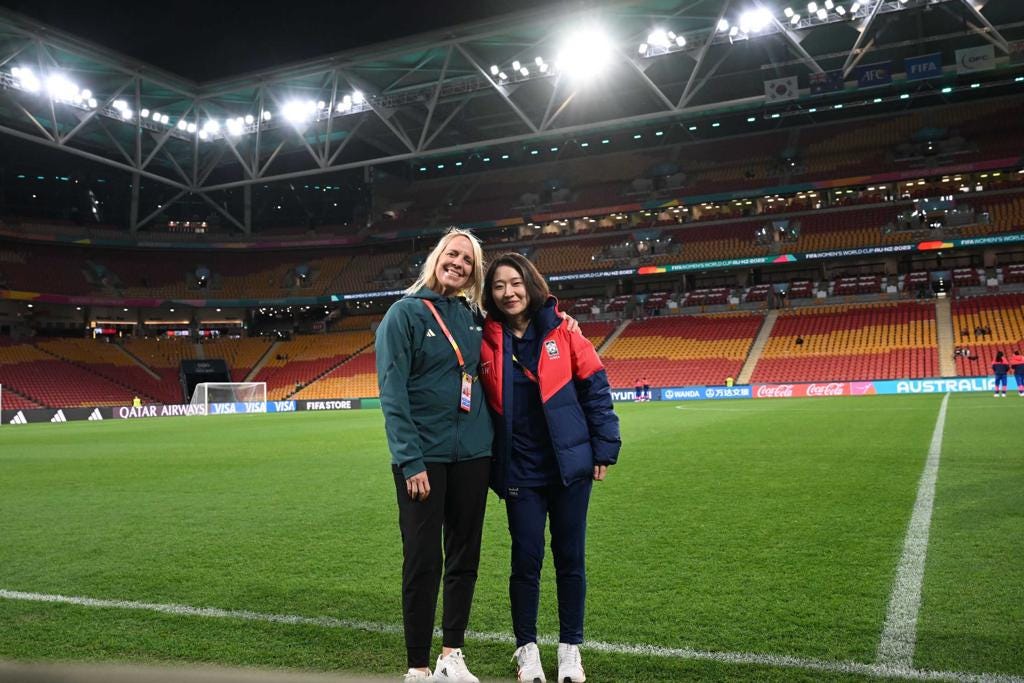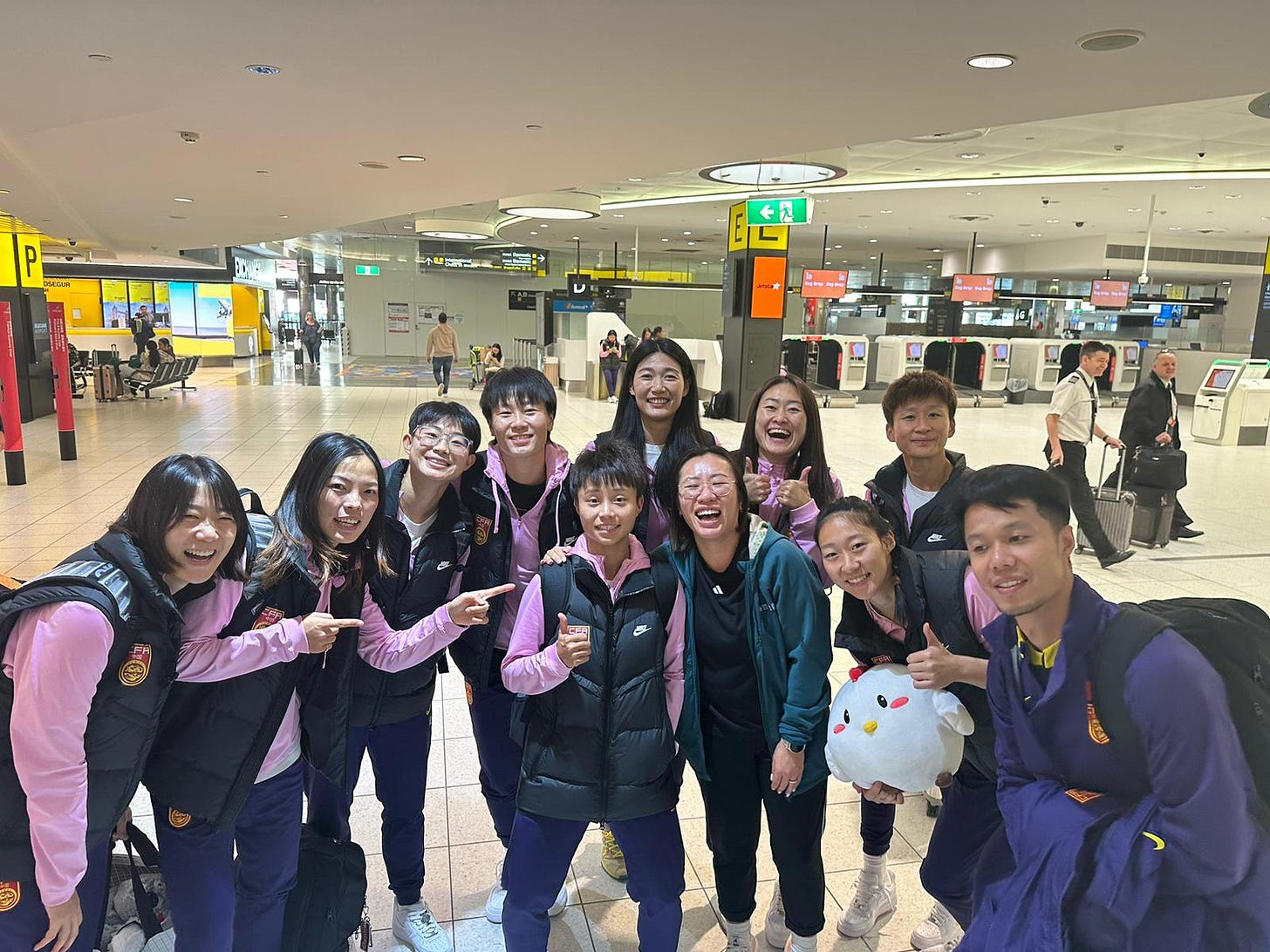Inside the role of a World Cup Team Liaison Officer
32 people from around the world came together to support each national team in the summer's World Cup. Three of them give a fascinating in-depth insight into what the role actually entails...
When a World Cup comes around, the focus tends to be on the 23 people selected to represent their country in the biggest tournament there is for any player.
Beyond that, the focus will fall on the head coach, but national teams are made up of dozens of support staff and aid from FIFA itself. On top of that, when it comes to a World Cup, the list truly goes on and on more than you’d believe.
But one person who comes into every team’s camp long before a tournament even starts is one of the most important of all, yet avoids the spotlight.
A national team, despite its endless list of staff, likely couldn’t function properly amidst the chaotic logistics of a major tournament at the other side of the world without them.
The Team Liaison Officer.
“That was the really cool thing, as an ex-player and coach I understood what was needed, I was a step ahead in knowing when to approach a coach or a player…”
All 32 nations have one, and the service and support they provide is invaluable. They come from all different backgrounds from all around the world, teamed up after an extensive recruitment process with the criteria set by the teams themselves, whether that be language spoken or a myriad of other factors.
The pyramid forms from there, with a team services manager overseeing the four TLOs in each group, and someone else at the top overseeing the whole programme.
All of them have different stories, and that’s the beauty of it, no one team liaison officer is the same. For example, Jenny Bindon is a former New Zealand international herself who was living in London coaching for Championship side London City Lionesses, and simply wanted to be involved in her home World Cup in any way.
Sharon Wong, who speaks Cantonese, is based in Melbourne and had previous experience as team manager of NPLW side Boroondara Eagles and the Victoria Para football state team.
Yann Roux, a Frenchman who moved to Auckland five years ago, was one of the few applicants who spoke French and is the Chief Executive Officer of Disability Sport Auckland.
Check out over 100 more unique stories in WFC’s Premium section, available for just £45 for 12 months, paid in one go, or a £6 a month rolling subscription.
All subscriptions come with a 7-day free trial to allow you to explore our full archive.
Plus, guarantee you everything that is to come over the next 12 months…
“I reached out to a good friend of mine and said ‘Hey, what can I do to help?” recalls Bindon, who earned 77 caps for New Zealand. “I was still in the USA at the time and Rob Pickstock [Team Services Lead Manager] was like ‘the best job would be TLO’ and I was just like ‘oh, cool’.
“I just thought that would be so much fun. It’s a big commitment, but it felt like a great fit for me personally.”
Outside of football, Bindon had utilised her background in sports marketing where she worked for Chicago Bulls, Boston Red Sox and then NIKE, and she’d had previous tournament experiencing working as a marketing manager for the first ever Under 17 Women’s World Cup in New Zealand back in 2008.
Bindon was teamed up with Colin Bell’s Korea Republic side, with that process going on for longer than people may think, with TLOs assigned to their national teams before the draw had even been made at the end of 2022.
“I met them first at the draw, then they played here in London [where Bindon moved in February and her son plays for Reading FC] and we rekindled the relationship with their team manager, Soo. I was really grateful they invited me in. I don’t speak Korean, but their English was amazing and everyone was so easy to work with.”
On the process that goes into assigning TLOs to their respective nations, Bindon gives an in-depth insight into how it works between FIFA, the applicants and the 32 national teams involved in the tournament.
“They have a criteria checklist the team manager and team ask for and I met those,” she says. “Colin and Matt [Ross, assistant head coach] both spoke English and the majority of the delegates speak in English, so it wasn’t uncommon. That was the really cool thing, as an ex-player and coach I understood what was needed, I was a step ahead in knowing when to approach a coach or a player. You’ve done it for so long you just have a sense of understanding. Knowing what they’d need after training, their snacks and their drinks within a certain timeframe. Maybe FIFA will look at bringing more ex-players in and I’d highly suggest it because it was a joy to give back. I’ve met so many amazing people and that continued in this World Cup.
“It’s pretty full on. It’s not a time to get rest and sleep, you go to bed after them and get up before them, but you’re working on behalf of FIFA while representing the team and the country. It was making sure everyone had the same accommodation, players had their own rooms, FIFA blankly said this is what it will be for everyone, not leaving it to the federation. I think if the right people stay involved and keep voicing their concerns it will keep growing and that’s all I want in football, to give back and create opportunities better than I had.
“I was employed with a year. We did seminars online as a group, a lot of meetings, then we all came in together to do a couple of workshops. It was that anxious moment of who I’d get paired with, when I got Korea I was like ‘what?!’ Then I was like ‘this is amazing’, because it was a different challenge, a new culture and I learned quickly what my team needed. Pam Yates, another Fern, was involved as well as she had a similar experience. A lot of it was around transportation, how many cars were required, your drivers, a security team you’d partner with, it’s just building relationships with people, that’s the biggest thing. You work with your accommodation team, the competition team, this was the first time they had base camps, so we had a home of where we trained and lived and then go out to the stadium you were playing the day before MD-1. You’re the one connecting all those dots.
Enjoying your paid subscription? Please feel free to recommend and share Women’s Football Chronicles to continue helping and supporting unique and in-depth women’s football content…
Wong’s story though she admits is “very different”, because she was called in to work with the China team much later than everyone else as FIFA struggled to find someone who fit the required criteria set out by the team manager.
The Melbourne-based TLO didn’t get called in until a few months before the tournament when a friend of hers working in team services asked her if she knew anyone who might fit China’s criteria.
“They had two requirements,” Wong recalls. “They had to be female and speak Mandarin-Chinese. While I’m Chinese, I speak Cantonese, so I thought it wasn’t going to be. The people in my circle tend to have full-time jobs and not really in sport, so I couldn’t find anyone. A week or two later, Jen Wilmott said they’d dropped the Mandarin requirement so I asked if I could apply and I got the role in May, so my stint was definitely a lot shorter!
Keep reading with a 7-day free trial
Subscribe to Women's Football Chronicles to keep reading this post and get 7 days of free access to the full post archives.





